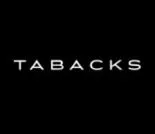A recent judgment in the Western Cape High Court deals with the limitation on collection costs that a debtor can be charged in terms of a credit agreement under the National Credit Act./p>
On 13 December 2019, Hack AJ handed down a judgment in the Western Cape High Court in University of Stellenbosch Law Clinic and others v National Credit Regulator and others regarding the limitation on collection costs that a consumer / debtor can be charged in terms of a credit agreement that falls under the scope of the National Credit Act ("NCA").
Social Context
A product originally offered by the Grameen Bank in Bangladesh, microcredit is a form of loan available to individuals who do not have assets to use as collateral. Offered by a multitude of institutions in South Africa, microlending / microcredit fulfils an important social function, in that it provides credit to people who, because of historic discrimination on the basis of sex and race, were unable to qualify for the conventional forms of credit, and it provides short-term liquidity to low income individuals and families. The price is high interest rates. The consequence is indebtedness that spirals out of control when debtors default on microloans.
Legal Context
Section 103(5) of the NCA extends the protection offered to a debtor under the common law by extending the ambit of the in duplum rule. Prior to the adoption of the NCA, the in duplum rule halted the running of interest on a debt once the interest was equal to the outstanding capital debt. In short, once the amount the debtor owed to the creditor doubled, interest stopped accruing. Section 103(5) extended the in duplum rule to include, in addition to interest, the initiation fees, service fees, cost of credit insurance, administration charges, and collection costs.
The Issue?
It became clear that credit providers were utilising a gap in our law which, prior to the enactment of the NCA, drew a distinction between legal or litigation fees and collection costs incurred by creditors in cases where debtors had defaulted on loan repayments. In effect, the creditors argued, section 103(5) did not apply to legal fees as part of "collection costs". They also argued that legal fees incurred where litigation had been instituted against the debtor for recovery of the debt did not form part of the "collection costs" contemplated by section 103(5). They therefore sought to recover legal fees from debtors in addition to a capped outstanding debt, calculated in accordance with section 103(5), which included collection costs.
What did the Applicants ask for?
The primary relief the Applicants sought was threefold. The Applicants sought a declaratory order to:
-
interpret the definition of collection costs to include legal fees;
-
declare that the section 103(5) limitation applies for as long as the consumer remains in default irrespective of whether judgment has been granted against the debtor; and lastly;
-
declare that the portion of the collection costs which are legal fees should only be claimable by the creditor subject to agreement or after taxation by a Taxing Master.
The Findings of The Court
The Court granted the declaratory relief in totality.
Having regard to the law of interpretation and the purpose of the NCA, Hack AJ was of the view that it is contrived to view legal costs as distinct from collection costs, that section 103(5) should apply even after judgment had been granted against a debtor, and as a matter of settled law, the legal fees and costs associated with collection cannot be claimed unless agreed to by the debtor or after taxation.
Practical Implications
The application of this judgment is not limited to microloans, but rather extends to all credit agreements that fall under the NCA.
For banks and other credit providers alike, there is a greater incentive to recoup outstanding debts using alternative means as opposed to instituting litigation, as there is now a limitation on the extent of the legal costs for which the debtor will be liable.
One major theme of the judgment is the need to reinforce the requirement for responsible lending.
Credit providers may have to be even more cautious when extending credit. There is now an even greater obligation on banks and other credit providers alike to ensure that they are lending responsibly.
In theory, the adverse consequence of this judgment is that, by increasing the pressure on credit providers to exercise caution in extending credit, it could reduce access to credit for microcredit for low-income borrowers.
The content of this article is intended to provide a general guide to the subject matter. Specialist advice should be sought about your specific circumstances.

